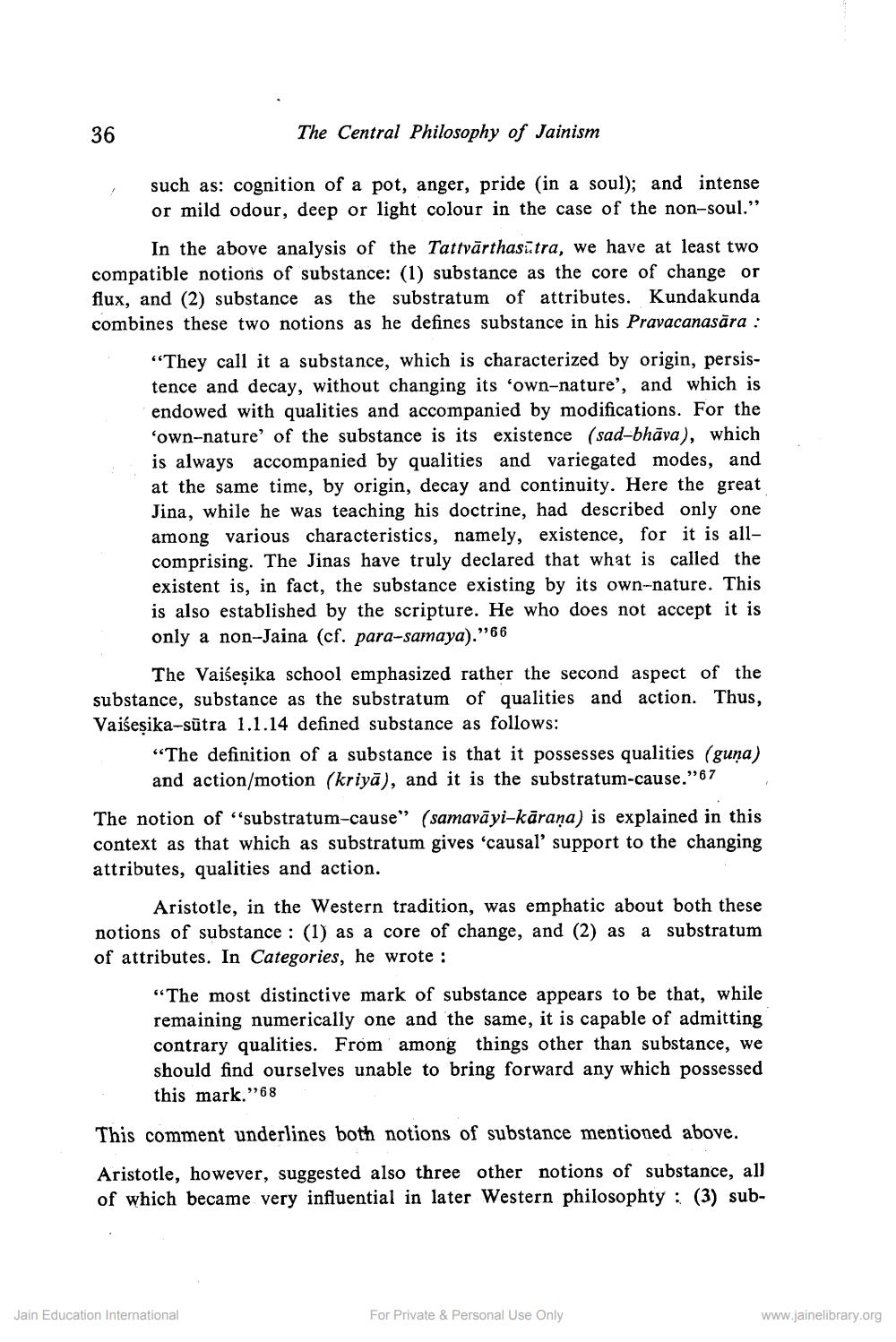________________
The Central Philosophy of Jainism
such as: cognition of a pot, anger, pride (in a soul); and intense or mild odour, deep or light colour in the case of the non-soul."
In the above analysis of the Tattvārthasūtra, we have at least two compatible notions of substance: (1) substance as the core of change or flux, and (2) substance as the substratum of attributes. Kundakunda combines these two notions as he defines substance in his Pravacanasāra :
“They call it a substance, which is characterized by origin, persistence and decay, without changing its ‘own-nature', and which is endowed with qualities and accompanied by modifications. For the ‘own-nature of the substance is its existence (sad-bhāva), which is always accompanied by qualities and variegated modes, and at the same time, by origin, decay and continuity. Here the great Jina, while he was teaching his doctrine, had described only one among various characteristics, namely, existence, for it is allcomprising. The Jinas have truly declared that what is called the existent is, in fact, the substance existing by its own-nature. This is also established by the scripture. He who does not accept it is only a non--Jaina (cf. para-samaya).”66
The Vaiseșika school emphasized rather the second aspect of the substance, substance as the substratum of qualities and action. Thus, Vaiseșika-sūtra 1.1.14 defined substance as follows:
“The definition of a substance is that it possesses qualities (guna)
and action/motion (kriyā), and it is the substratum-cause."67 The notion of "substratum-cause” (samavāyi-kāraṇa) is explained in this context as that which as substratum gives 'causal support to the changing attributes, qualities and action.
Aristotle, in the Western tradition, was emphatic about both these notions of substance : (1) as a core of change, and (2) as a substratum of attributes. In Categories, he wrote :
“The most distinctive mark of substance appears to be that, while remaining numerically one and the same, it is capable of admitting contrary qualities. From among things other than substance, we should find ourselves unable to bring forward any which possessed this mark."68
This comment underlines both notions of substance mentioned above.
Aristotle, however, suggested also three other notions of substance, all of which became very influential in later Western philosophty : (3) sub
Jain Education International
For Private & Personal Use Only
www.jainelibrary.org




